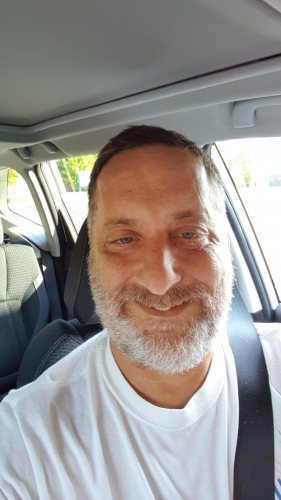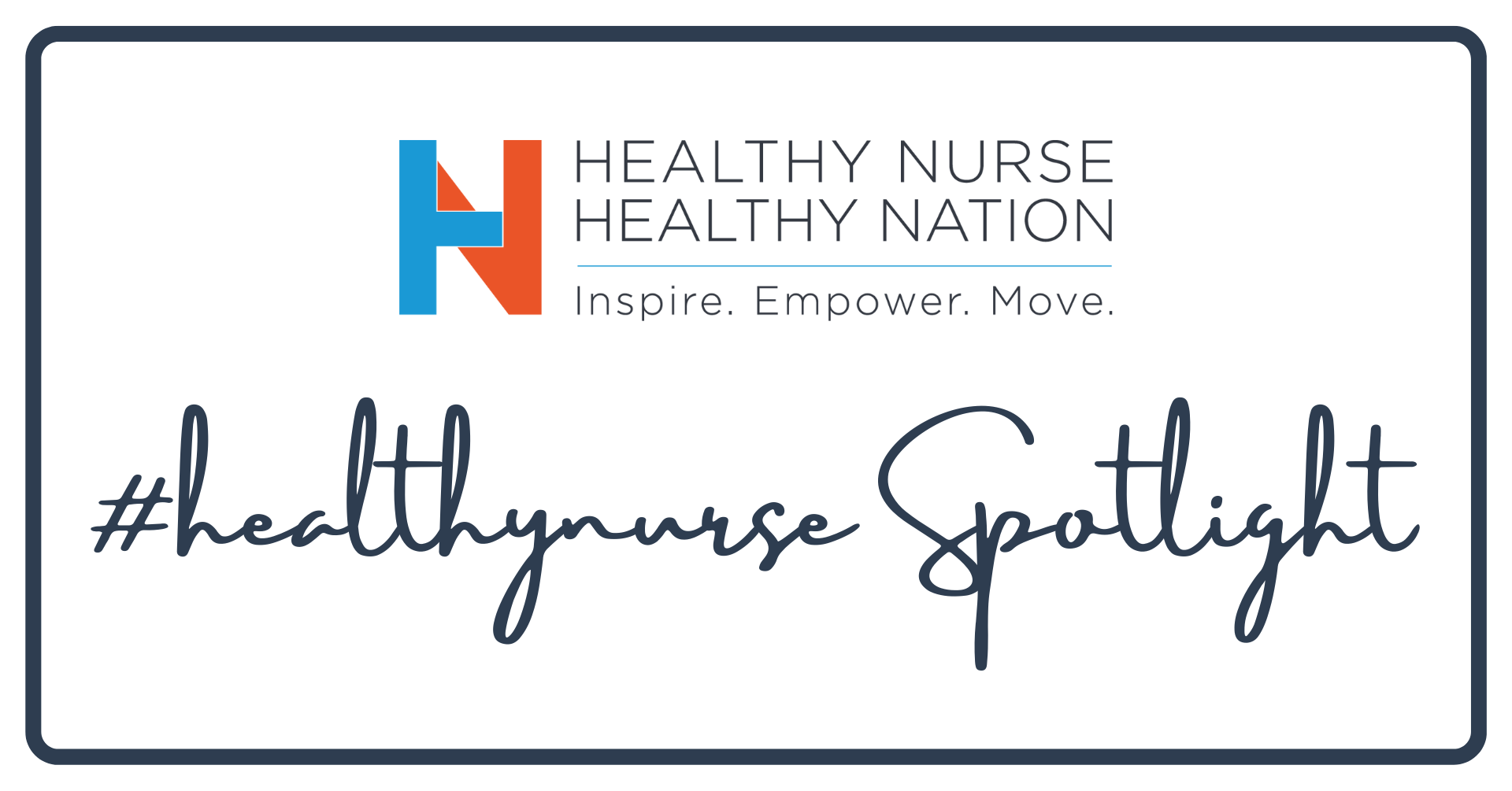ANA Healthy Nurse, Healthy Nation® - #healthynurse Spotlight Series - Rick Ackerman, RN
Published
Home health nurse Rick Ackerman, RN, nurse for CenterWell Home Health, prioritizes exercise, mental breaks, and socialization.

Life isn’t without its share of challenges. Every one of us goes through turbulent times. But what gets us through those difficult circumstances?
For some, it’s the strong foundation they’ve built from years of prioritizing self-care. That’s the case for Rick Ackerman, RN, who works as a home health nurse for CenterWell Home Health in Milwaukee, WI.
Rick learned from a young age what it was like to care for others. He was raised by his elderly grandparents who experienced many health issues including type 2 diabetes, stroke, heart disease, and kidney problems. This meant Rick needed to help around the house more than the average kid by taking care of the home and even cooking his own meals at times.
He witnessed the impact of his grandparents’ deteriorating health and vowed to himself to do whatever he could to keep his well-being strong.
“Being raised by them, I saw how important it was to take care of yourself early on,” says Rick. “As you get older, it gets harder and harder to do.”
That’s one of the main reasons Rick decided to become a nurse. Helping them through their illnesses as he grew up, he saw his career path. “I wanted to give that same care to others and ensure they got the dignity they deserved,” says Rick.
Now, Rick not only spends workdays caring for his patients, but he also acts as a caregiver at home, for his own family. Rick’s wife is currently undergoing cancer treatments, and his 3 children — 1 of whom is autistic — all rely on his care and strong sense of well-being.
A Family That Exercises Together is Healthier Together
His family continues to be a motivation for Rick as he prioritizes physical activity, mental health, and socialization. One of his biggest focuses is exercise, which is non-negotiable in his schedule. At least 3 times per week, Rick does something active like biking alongside a lake near his home or weightlifting with his son.
“There’s a path along the lakeshore that I find really relaxing,” says Rick. “As I ride my bike, I try to get my heart pumping and get my muscles working a little bit.”
Rick is in good company — all 3 of his kids are active, too. His daughter plays softball and trains at the gym every day. His oldest son is a long-distance runner who enjoys competing in 5k and 10k races. And his younger son weight trains and prioritizes a healthy diet.
Because his family shares his focus on exercise, Rick finds that it’s a great way to bond with his kids. Plus, research shows that social bonding can even lead to improved exercise performance. That means exercising together creates a better workout — a win-win.
Making Time for Mental Breaks
Another important aspect of Rick’s health is dedicated time to unwind. He does this with periodic mental breaks that allow him to disconnect from daily responsibilities. His favorite activities include playing video games, reading books, listening to music, or doing anything that helps him get to a “Zen” place. These activities help Rick to zone out and stop thinking about daily stressors for a short time, which helps relax his mind and body.
While brain breaks like these are often touted for kids, they’re equally beneficial for adults. Doing something you enjoy or checking out for a bit helps calm your central nervous system and restore your brain’s ability to pay attention.
“I try to keep my mental health in check by doing little activities that aren’t related to work or family,” says Rick. “I always allow myself time to recharge.”
Being Social Boosts Health, Too
Another way Rick recharges is by spending time with friends who encourage him and keep him motivated to live a healthy lifestyle. They go hiking, play disc golf, attend sporting events together, ride bikes, and team up for home remodeling projects. Having a strong community to lean on — in good times and bad — goes a long way, he says.
Rick has the right idea. Science shows that friendships keep us healthy. People who have friends and close confidants are happier with their lives and less prone to mental health issues like depression. They're also less likely to die from heart issues or other chronic conditions.
Self-Care Discipline to Power Through
Whether it’s a stressful workday, a busy schedule juggling his kids’ and wife’s commitments, or something else — Rick knows how much he needs self-care. This awareness has been ingrained in him since childhood, and it has stuck with him through the years.
“I’ve had this mental discipline ever since I was a child growing up with grandparents who were sickly,” Rick says. “I’m still using their expertise and life experience to guide my life.”
Prioritizing personal self-care is important for everyone, but it’s especially crucial for nurses who are always giving their time and energy to others. As a home health nurse, Rick knows this firsthand.
“You’ve got to make yourself a priority at times,” he says. “Make some space each day to take a timeout, reflect, and pamper yourself. If you don’t take care of yourself, you can’t take care of someone else.”

Not a member of Healthy Nurse, Healthy Nation (HNHN) yet? Join today!
Sign up for our monthly challenges!
Blog #healthynurse Spotlight
03/13/2024 3:15pm CDT
The #healthynurse Spotlight is a shout out to nurses who are making changes in their lives to improve their health and wellness. You can too! Read their stories for inspiration here.




Post a Comment or Question